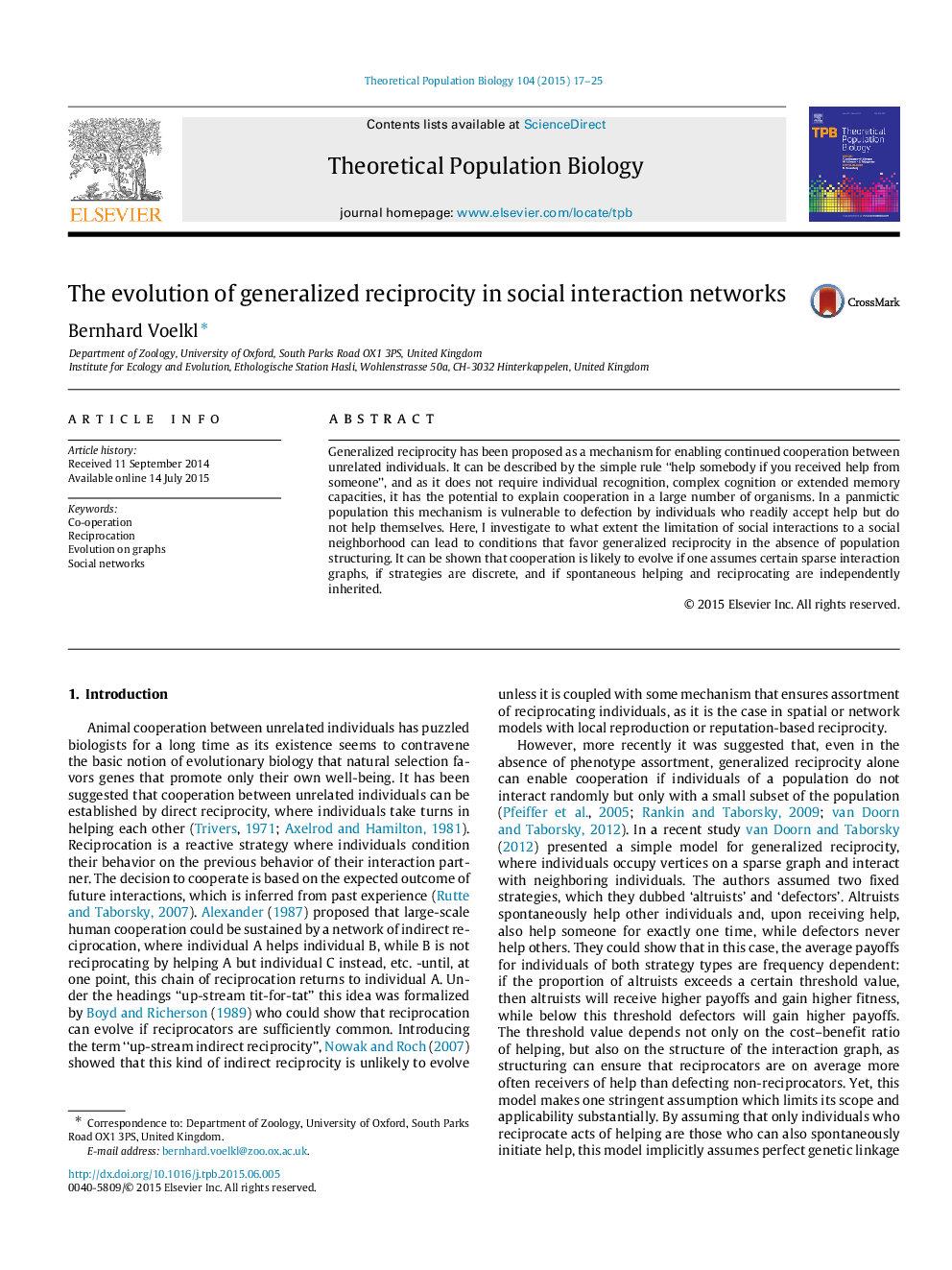| Article ID | Journal | Published Year | Pages | File Type |
|---|---|---|---|---|
| 4502316 | Theoretical Population Biology | 2015 | 9 Pages |
Generalized reciprocity has been proposed as a mechanism for enabling continued cooperation between unrelated individuals. It can be described by the simple rule “help somebody if you received help from someone”, and as it does not require individual recognition, complex cognition or extended memory capacities, it has the potential to explain cooperation in a large number of organisms. In a panmictic population this mechanism is vulnerable to defection by individuals who readily accept help but do not help themselves. Here, I investigate to what extent the limitation of social interactions to a social neighborhood can lead to conditions that favor generalized reciprocity in the absence of population structuring. It can be shown that cooperation is likely to evolve if one assumes certain sparse interaction graphs, if strategies are discrete, and if spontaneous helping and reciprocating are independently inherited.
